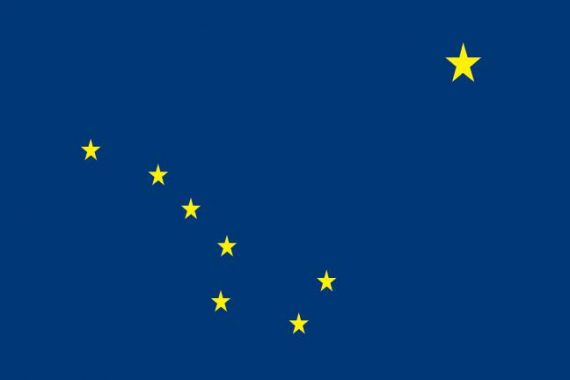More Intra-Party Manuevers
This time: the Alaska GOP.

I have recently noted intra-party fissures linked to the upcoming primary season in the Ohio Senate contest and the Texas gubernatorial race. In both of those cases, the fault lines are about exactly how trumpy a given set of candidates is. An expected addition to this list is the Alaska Senate race, as the Anchorage Daily News reports: Alaska Republican Party leaders endorse Tshibaka in U.S. Senate race.
The Alaska Republican State Central Committee on Saturday endorsed Kelly Tshibaka in the 2022 race for the U.S. Senate seat currently held by Republican Lisa Murkowski.
The committee approved Tshibaka’s endorsement in a 58-17 vote during a meeting in Fairbanks.
[…]
Tshibaka announced on March 29 that she would run for the Senate seat held by Murkowski, who has been in office since 2002 and is widely viewed as a moderate. Two weeks earlier, the Republican State Central Committee voted 53-17 to censure Murkowski, citing her vote to impeach former President Donald Trump and other votes that have broken with GOP leadership. Alaska Republican Party leaders said at the time that they would recruit someone to run against her.
Tshibaka is clearly running as a trumpista.
Trump endorsed Tshibaka last month, calling her “MAGA all the way.” Trump said in a statement at the time that he would campaign for Tshibaka in Alaska.
Of course, this is not Murkowski’s first bought of intra-party conflict:
Murkowski has seen stiff competition at the ballot box before: In 2010, she experienced a surprise loss to Joe Miller in the Republican primary, but she prevailed in the November general election as a write-in candidate — the first senator to do so in over 50 years.
Murkowski has not yet filed to run but is expected to do so. It should be noted that the endorsement for Tshibaka is not binding in any way and does not preclude her from running as a Republican.
The big wrinkle here is Alaska’s new top-four, two-round electoral system:
One complicating factor in the 2022 election is Alaska’s new ranked-choice voting system, poised for implementation under a voter-approved initiative that is being challenged in court. Under the new system, which would end party primaries in Alaska, the top four vote-getters in an open primary advance to the November general election regardless of party affiliation. That opens up the possibility of having multiple candidates from the same party on the general election ballot.
This is a version of the top-two system used in California. Despite the language being used (e.g., “open primary”) what we have here (and we have in CA and other states that use such systems) is a two-step electoral process wherein candidates from both different parties and the same party can openly compete in the first round. This is not a primary, regardless of what people call it. A primary is an election to nominate a party’s candidate. In these systems, the candidates are self-nominating. The party has essentially no control over who represents them on the ballot.
The first stage of Alaska’s top-four is not a nomination process, it is an elimination round. The top four vote-getters in the first round advance to the second round wherein the winner is selected by RCV. We are about to see either another illustration of a fundamental weakness of US political parties, i.e., lack of control of their own label, or the degree to which this new system encourages new party formation (or, at least, participation from existing third parties).
Murkowski has a choice: run as Republican or run under some other label. Unless I am missing something in Alaska law, the state party cannot stop her from using the Republicans label to run against Tshibaka in either round. Murkowski could, if she so desires, break with the AK GOP and present herself as an independent or come up with her own party label (perhaps something as banal as doing a Joe Lieberman and going “independent Republican”). Were I to guess, I would guess that she sticks with “Republican” (and if she wins re-election, will have stuck it to the AK GOP yet again).
I cannot perceive what advantage Murkowski would get in changing her designation away from simple Republican. I would think the change would only encourage more conservative Alaskans to see her as being a RINO to begin with. Sticking with the Republican label will, in my view, cast her in the “it’s my party you get out” role, which strikes me as the high ground for her.
How stupid are Alaska republicans? They already tried this one — and she won as a write-in. What a pity she’s such a milquetoast she’ll never bother to make these creeps pay after she wins.
A big lie needs unanimous endorsement. It isn’t going to get it, it looks like. So I’m guessing it falls apart at some point. You can shun those who are contradicting Big Lie, but you can’t make them shut up. And if you can’t even beat them in an election, I think the whole things grinds to a stop. However, that’s gonna take a while, especially when the Big Lie is powered by Big Names and Big Money.
It will be interesting to see if the parties have learned how to exploit ranked choice voting. If Democrats have any brains, they’ll do whatever they can to ensure Murkowski gets all their second preferences. It may well allow her to win even if she lags a long way behind the endorsed Republican on the first round.